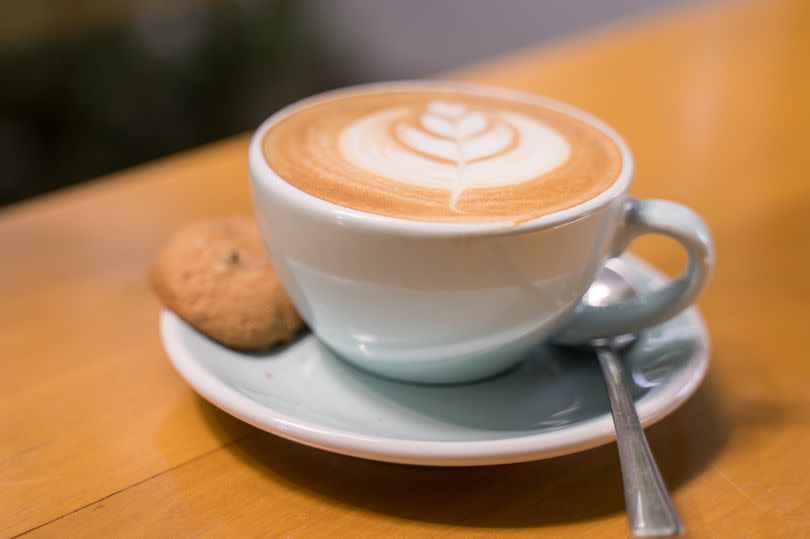Reason drinking coffee makes you need the toilet explained by experts

A lot of people who drink coffee will tell you that they often need to use the bathroom soon after. You might be curious about why this happens, but there's actually some scientific reasons behind it.
While not everyone experiences this consequence of coffee consumption, it is common enough that experts have conducted research. The reason lies in how your gut reacts to coffee.
Drinking coffee triggers the release of digestive hormones and stomach acid. This usually happens shortly after the beverage is detected in your system.
Coffee also starts the wave of another digestive hormone known as cholecystokinin or CCK. This hormone prompts the release of food-digesting enzymes from the pancreas alongside bile from the gallbladder - all directed to your small intestine.
Once the coffee hits your large intestine, it spurs more activity by provoking gut muscle contractions. Essentially, coffee sets things in motion throughout your entire body.
Both gastrin and CCK could play a role in the gastrocolic reflex - a gut response pushing food through the gut to make way for incoming victuals. This might be another route via which coffee promotes bowel movements in some people, reports the Mirror.
An average cup of caffeinated coffee typically contains around 95 milligrams of caffeine. Whereas its decaffeinated counterpart contains 2mg.
Renowned for its capacity to "wake up" your gut, caffeine can stimulate remarkable activity in the large intestine. This effect is comparable to the response induced by a 1,000-kilocalorie meal, according to a recent review of findings.
Decaffeinated coffee may not have the same impact on your gut as its caffeinated counterpart, but it could still increase your urge to use the bathroom. This effect is thought to be due to other compounds present in the beverage, such as polyphenols.
Everyone's sensitivity to caffeine varies and can cause unwanted side effects like headaches, restlessness, and disrupted sleep. Your sensitivity can also change over time, so if you're a regular coffee drinker, you might find that you can tolerate more without experiencing any symptoms.
For some, consuming coffee with a high milk content can lead to gut symptoms, often due to lactose rather than the coffee itself. Whether adding dairy to your coffee causes symptoms depends on your individual tolerance levels.
However, most people, including those with lactose intolerance, don't experience issues when adding just a small amount of milk or cream.
Does having coffee at a certain time make a difference?
The timing of your coffee intake can influence its effect on your gut. The gastrocolic reflex is more active in the morning and post meals, hence you may feel a stronger urge to use the toilet after your morning cuppa, compared to your afternoon one.
Your body's internal clock also plays a part as your gut functions differently when you're eating regularly versus when you're asleep. As expected, there's increased activity in your gut when you're awake and moving about, including enhanced gut muscle movement, digestive juices production, and nutrient absorption.
Can you stop these effects?
When consumed on an empty stomach, 99% of caffeine is absorbed within 45 minutes and reaches its peak in your bloodstream after about an hour or two. However, if you pair your coffee with a meal rich in fibre, protein, and healthy fats, the caffeine absorption rate in your gut slows down significantly.
Given that coffee stimulates activity in the large intestine, it has gained popularity as a natural home remedy for constipation. Therefore, if you're having trouble with bowel movements, this biological response could actually be used to your advantage.
The most effective time to try this is in the morning or after a meal, when the gastrocolic reflex is at its peak. Having a cup of coffee with your breakfast or shortly after might just do the trick to get things moving again.

 Yahoo News
Yahoo News 
